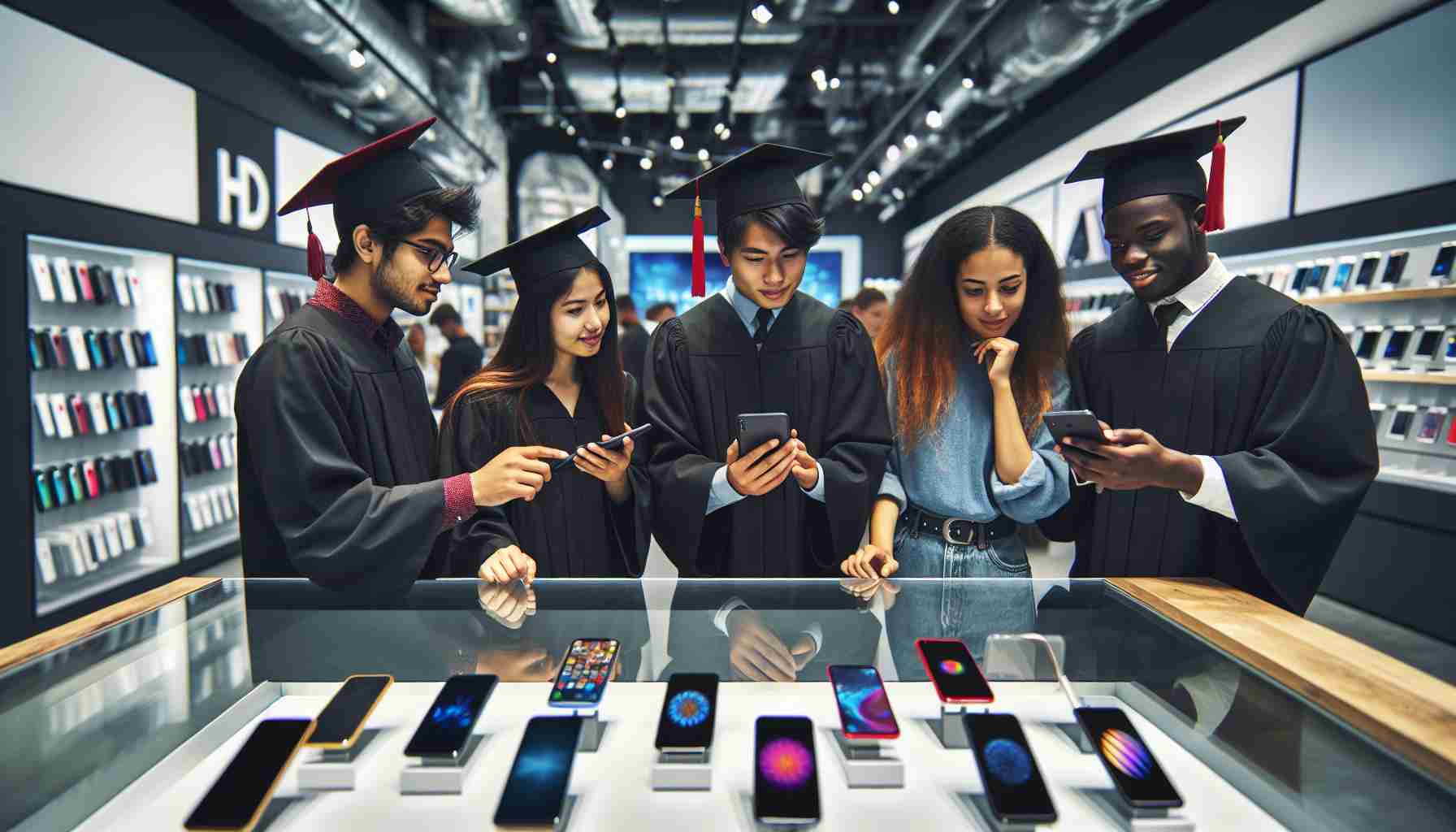When new graduates step into their next chapter of life, the digital world accompaning them grows increasingly vital. Among their arsenal of electronic companions—such as wireless audio devices, wearable tech, and portable chargers—the smartphone typically reigns supreme.
Understanding the graduate’s needs is crucial; their smartphone is more than just a device—it’s an integral part of their daily routine. It’s the tool that keeps them punctual, helps them stay connected, supports their quest for knowledge, and offers relaxation amidst their bustling new schedules.
While parents often look for long-lasting, cost-effective options for their teens and college kids, the transition from student to graduate calls for a potential technology refresh. Seeking a perfect match in the vast sea of smartphones can be daunting, but the right one can greatly enhance a young adult’s navigation through early career paths and personal endeavors.
Our conversations with fresh college alumni have led to insights about the importance of harmonizing a smartphone’s features with an individual’s lifestyle and preferences. As they embark on adventures in the professional world and beyond, the right device can serve as a trusty companion equipping them with the means to thrive in a competitive and fast-paced environment.
Choosing the Ideal Smartphone for Today’s Graduates
As today’s graduates enter the workforce, choosing the right smartphone becomes critically important due to the extensive use of digital tools in most professions. The smartphone is not just a means of communication—it is a personal assistant, a work station, a learning platform, and a source of entertainment.
Important questions in choosing a smartphone:
– Budget: How much is the graduate willing or able to spend?
Answer: Graduates should consider smartphones within their budget, factoring in upfront costs and monthly plan fees.
– Operating System: Does the graduate prefer Android or iOS?
Answer: This choice is subjective and may depend on familiarity with the system, app availability, or integration with other devices.
– Performance: What type of processor and how much RAM is needed?
Answer: A powerful processor and ample RAM are important for multitasking, smooth operation, and running demanding apps or games.
– Storage: How much storage is necessary?
Answer: Graduates should consider a phone with adequate storage for apps, media, and documents, with the option for expandable storage if needed.
– Battery Life: How long does the battery need to last?
Answer: The smartphone should have a battery that lasts at least a full day on a single charge under typical usage.
– Camera Quality: Is a high-quality camera a priority?
Answer: For those interested in photography or video creation, the camera’s quality and features should be a considerable factor.
Key challenges and controversies:
– Privacy and Security: Smartphones are repositories of personal information, and graduates must understand how to protect their data. Controversy exists over data collection practices by manufacturers and app developers.
– Environmental Impact: The production and disposal of smartphones contribute to environmental issues. Graduates who are environmentally conscious may look for brands with sustainable practices or consider purchasing refurbished models.
Advantages:
– Constant Connectivity: Smartphones provide the ability to stay connected with colleagues, friends, and family through various platforms like email, social media, and messaging apps.
– Productivity: Many productivity apps are available that can help graduates manage their tasks, schedule, and collaborate with others.
– Learning and Development: Smartphones offer access to online courses, educational resources, and news which can aid in continued learning.
Disadvantages:
– Distractions: The multitude of apps and notifications can be distracting and may reduce productivity and focus.
– Cost: High-end smartphones can be expensive, and this cost can be a significant burden for recent graduates who might already be managing student loan debt.
– Obsolescence: Technological advancements make smartphones obsolete quickly, pressuring users to upgrade frequently.
Suggested related link:
For broader information regarding consumer electronics and technology news, graduates may refer to CNET. Please note that while CNET is a reputable source for technology-related information, ensure to verify any links before visiting.
In conclusion, selecting the ideal smartphone for a graduate requires balancing various elements, including affordability, functionality, and personal preference. While the perfect smartphone varies from person to person, carefully considering these factors will help secure a device that supports their new journey into the professional world.
The source of the article is from the blog zaman.co.at
